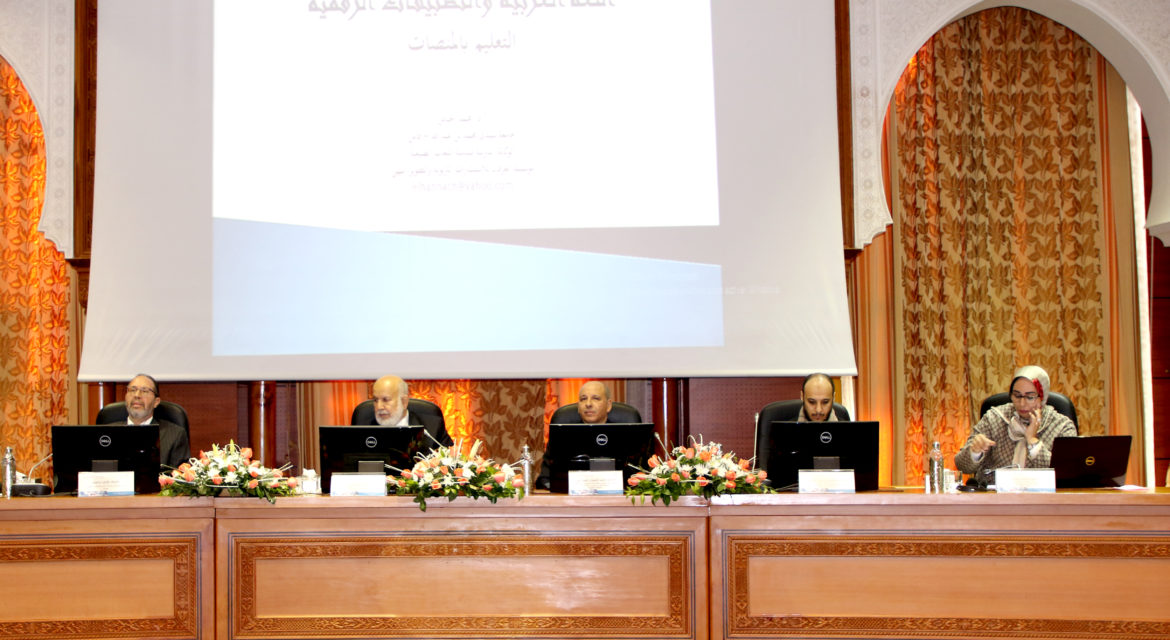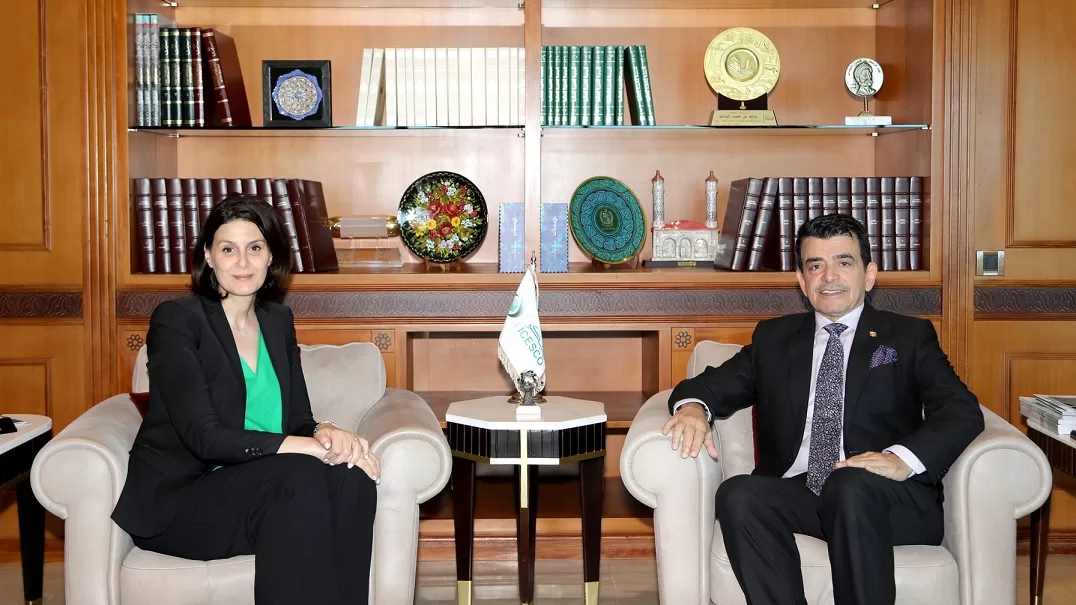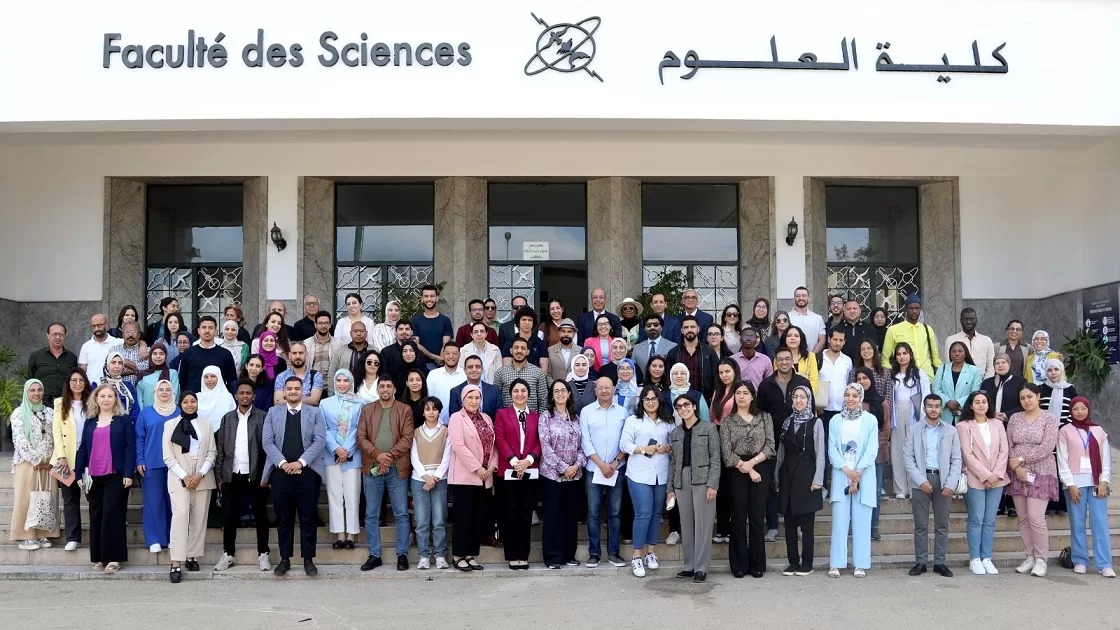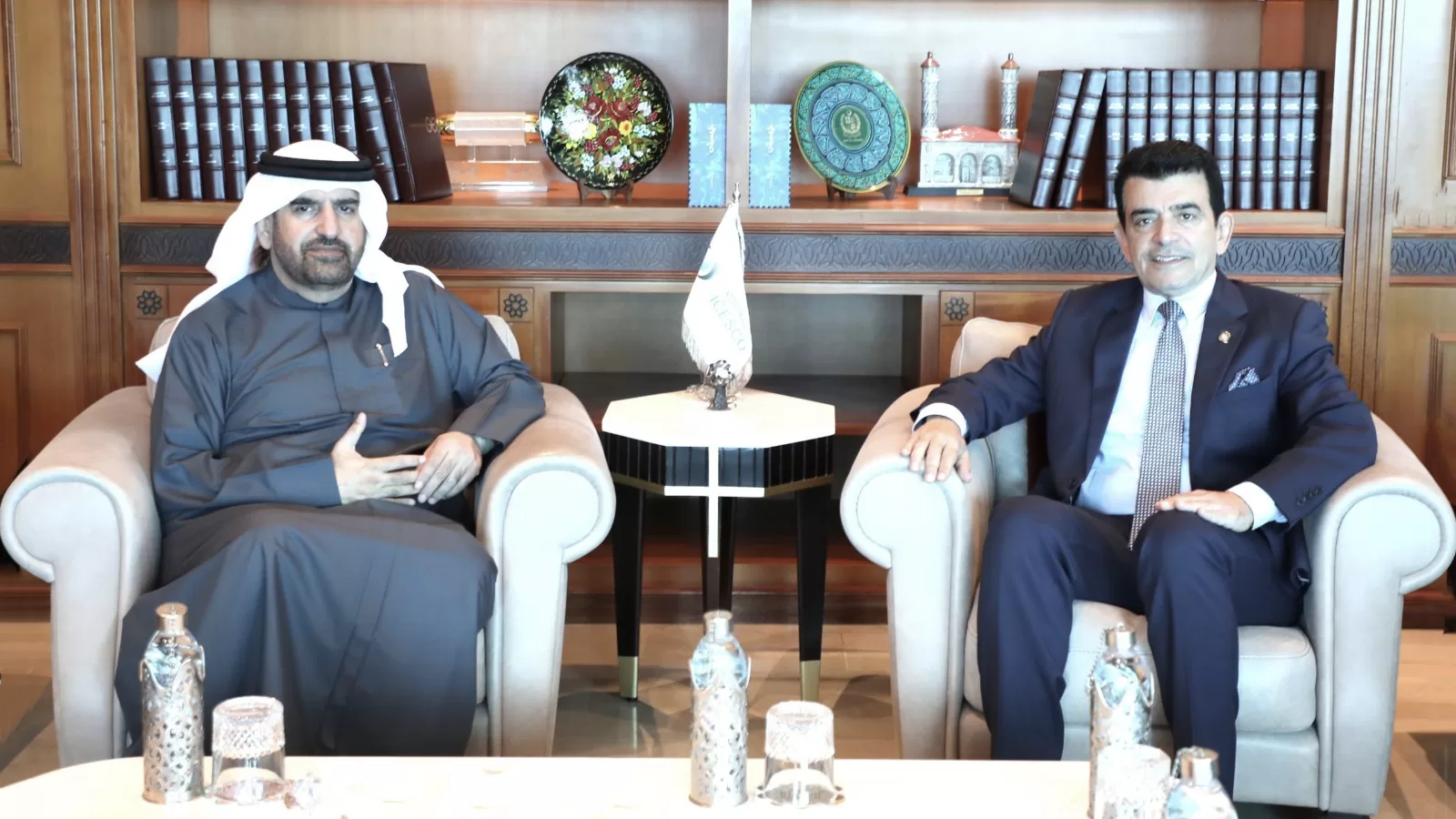
Teaching Arabic Language in Digital School. . . a symposium to celebrate ISESCO celebration

27 December 2019
As part of the celebration of the Islamic Educational, Scientific and Cultural Organization (ISESCO) on the occasion of the World Arabic Language Day, held today at its headquarters under the theme “Arabic Language and Artificial Intelligence” in cooperation with the Saudi Cultural Attaché in Rabat, the Association of Institutions of Teaching Arabic Language to Non-Arabic Speakers, and the Moroccan Association of Arabic Calligraphy, a symposium was held under the theme “Teaching Arabic Language in Digital School”.
The symposium was moderated by Dr. Abdullah Al-Obeid, President of the Association of Institutions of Teaching Arabic Language to Non-Arabic Speakers. It mainly discussed the relationship of Arabic language with modern digital applications and programs and their importance in teaching and learning Arabic.

At the outset, Dr. Mohamed El Hannach, Teacher of General Linguistics and Arabic language at Sidi Mohamed ben Abdellah University in Fes, President of the International Agency of NLP (IA4NLP) of the Kingdom of Morocco, made a presentation entitled “Arabic language and digital applications: teaching platforms” wherein he tackled the digital educational resources in Arabic language for non-Arabic speakers for keeping up with future developments, as well as the digitalization of teaching platforms and its benefits and drawbacks within the technological development.
Afterwards, Dr. Tarek Makhlouf, Director of Granada Editions based in Paris, made a presentation on “the Institution and its educational models for enhancing students’ level”. Then the audience listened to another presentation by Mr. Reda al-Rejibi, Director of Teaching Division at Granada Editions, on the platform of teaching Arabic language ‘Anas Digital’.
Dr. Hicham bin Saleh al-Qadi, representative of Arabic Linguistics Institute, Assistant Teacher of Applied Linguistics at King Saud University in Riyadh, tackled the issue of Artificial Intelligence in his presentation on the role of AI in teaching languages in general and Arabic language in particular.

The floor was then given to Dr. Ahmed Alaoui Abdelaoui, staff member of the Faculty of Arts and Human Sciences of Sidi Mohamed ben Abdellah University in Fes, to make his presentation on the role of the inclusive language in ensuring the cultural security of Arab countries. He also stressed the importance of language as a tool for unifying society given its communication, cultural, knowledge, historical and civilization roles that keep society coherent and harmonious. Besides, he raised the problematic of multilingualism in the Arab world, and stressed the need to rationalize each language in its natural environment within the linguistic system of the Arab world.
On her part, Dr. Hakima Shami, Director of the Centre of Documentation and Cultural Activities at the Regional Delegation of Islamic Affairs in Casablanca, made a presentation on “Arabic calligraphy and the Moroccan specificity”. She highlighted the emergence of Arabic calligraphy in Morocco, the beginning of Moroccan calligraphy, and the most famous types of Moroccan calligraphy. She concluded her presentation by reminding that “Arabic calligraphy and the Moroccan specificity is a call for reconciling with our mother tongue. It is a problematic of communication between the past and the present behaviors in line with the modern era’s requirements.
At the close of the symposium, the floor was given to the audience, who made fruitful interventions and raised many questions.




